This article was medically reviewed by Luba Lee, FNP-BC, MS. Luba Lee, FNP-BC is a Board-Certified Family Nurse Practitioner (FNP) and educator in Tennessee with over a decade of clinical experience. Luba has certifications in Pediatric Advanced Life Support (PALS), Emergency Medicine, Advanced Cardiac Life Support (ACLS), Team Building, and Critical Care Nursing. She received her Master of Science in Nursing (MSN) from the University of Tennessee in 2006.
There are 12 references cited in this article, which can be found at the bottom of the page.
wikiHow marks an article as reader-approved once it receives enough positive feedback. In this case, 100% of readers who voted found the article helpful, earning it our reader-approved status.
This article has been viewed 358,730 times.
Even if your lip swelled due to an injury, it is vulnerable to infection while it is healing. Keep any swollen lip clean and manage the swelling with cold and warm compresses. If you don't know what caused the swelling, or you suspect an allergic reaction or infection, visit the doctor right away.
Steps
Responding to Serious Conditions
-
1Respond quickly to an allergic reaction. Some swollen lips are caused by allergic reactions, which can be fatal. Seek medical care right away if this has never happened to you before, if your lips are severely swollen, if it affects your breathing, or if your throat swells. If you've had similar allergic reactions in the past and know that these are mild symptoms, take an antihistamine, and keep your inhaler or epinephrine shot nearby.[1]
- If the reaction was caused by an insect bite, seek emergency services immediately.[2]
- If you're not sure what caused the swelling, take precautions as though it were an allergic reaction. In many cases, the cause of the allergic reaction is never discovered.
- "Mild" cases can still last several days. Visit a doctor if the swelling hasn't disappeared by then.
-
2Treat mouth infections. If your lips also have blisters, cold sores, swollen glands, or flu-like symptoms, you may have a mouth infection, most commonly the herpes simplex virus. Visit a doctor for a diagnosis and prescription antiviral or antibiotic medication. In the meantime, avoid touching your lips, kissing, oral sex, and sharing food, drink, or towels.[3]Advertisement
-
3Make an appointment if you do not know the cause. If you don't know what caused the swelling, see a doctor to find out. This is especially important if it does not reduce within a few days. Here are a few possibilities:
- Severe swelling during pregnancy may be a sign of pre-eclampsia. This is a serious condition, so visit the doctor right away.[4]
- Anti-depressants, hormone treatments, and blood pressure medication may lead to swelling.
- Heart failure, kidney failure, and liver failure usually lead to more widespread swelling, not just the lip.
-
4Check on swelling and pain each day. If the swelling persists after 2 or 3 days, please see a doctor. If the pain suddenly increases, see a doctor.[5]
Home Treatments
-
1Clean the area. While your lip is swollen and sore, it is vulnerable to injury. Sponge it with water gently, several times a day or whenever it gets dirty. Do not pick at it or wipe it.
- If the lip swelled after an injury, especially a fall, disinfect it with an antiseptic.
- If the lip is swollen due to a piercing, follow the advice from the person who did the procedure. Don't take the piercing in and out unnecessarily. Wash your hands before you handle it.
- Do not clean with rubbing alcohol, which can make it worse.
-
2Apply cold on the day of the injury. Wrap ice in a towel, or use an ice pack from the freezer. Place it gently on your swollen lip. This will reduce swelling for a recent injury. After the first few hours, cold is not typically effective, except to relieve pain.[6]
- If you don't have ice, freeze a spoon for 5-15 minutes and put that on your swollen lip. Alternatively, suck on a popsicle.
-
3Switch to warm compresses. After the initial swelling is done, warmth may encourage healing if bruises are present. Heat water until hot, but still cool enough to touch. Dip a towel in the water, then wring out the excess. Hold it to your lips for 10 minutes. Repeat once an hour, several times a day or until swelling reverses.
-
4Take over the counter painkillers. Non-steroidal anti-inflammatory drugs (NSAIDs) are medications that decrease pain and swelling.[7] The most common over-the-counter variants are acetaminophen, ibuprofen, and naproxen.
-
5Stay hydrated. Drink plenty of water to keep your lips hydrated and avoid further cracking or swelling.
-
6Protect your lips with lip balm or chapstick. These treatments moisturize your lips, preventing further cracking and drying.[8]
- There are many ways to make your own lip balm. Try combining 2 parts coconut oil, 2 parts olive oil, 2 parts grated beeswax, and a few drops of essential oil for scent.
- In a pinch, just dab your lips with coconut oil or aloe vera gel.
- Avoid balms that contain camphor, menthol, or phenol. Use petroleum jelly sparingly, as it may cause health issues in large quantities, and may not add much additional moisture.
-
7Keep the lip uncovered and pressure-free to avoid injuring it again. Pressure can cause more injury and a lot more pain. Try to keep the bruised area free and exposed to air.
- If chewing food hurts, healing will take much longer. Replace some of your diet with healthy smoothies and protein shakes, through a straw.
-
8Eat a healthy diet. Stay away from salty, high-sodium foods, which can encourage swelling. [9] In general, a healthy diet with enough vitamin and proteins may aid recovery.
- Avoid acidic foods, which may cause pain.
Treating a Cut or Split Lip
-
1Check your teeth and lips after an injury. If you hit your mouth, check for injuries. If your teeth are loose, see a dentist right away. If you have deep cuts, visit a doctor. He may sew the wound closed to prevent scarring, or give you a tetanus shot.[10]
-
2Disinfect with salt water. Dissolve 1 tbsp (15mL) salt in 1 cup (240mL) warm water. Dip a cotton swab or towel into the water, then dab the cut lightly. This will sting at first, but it reduces the risk of infection.[11]
- If saltwater is too painful, clean the area with tap water and dab a bacitracin ointment, like Neosporin, onto your lips with a cotton swab.
-
3Apply cold and hot compresses. As described above, an ice cube or ice pack wrapped in a towel will reduce swelling on the day of the injury. Once initial swelling is over, switch to warm, wet towels to stimulate blood flow and healing. Hold either type of compress to your lips for ten minutes, then leave it off for one hour before your next use.[12]
Warnings
- If your lip is still swollen after 2 weeks, seek medical attention. You probably have an infection or another serious condition.⧼thumbs_response⧽
- Due to the possibility of ingestion, over the counter ointments and herbal remedies are potentially dangerous. There is no strong evidence that arnica or tea tree oil will help, and tea tree oil especially comes with serious risks if ingested.[13]⧼thumbs_response⧽
Things You'll Need
- Ice or cold pack
- Towel
- Lip balm
- Salt
- Water
References
- ↑ http://www.nlm.nih.gov/medlineplus/ency/article/000846.htm
- ↑ https://acaai.org/allergies/types/insect-sting-allergy
- ↑ https://medlineplus.gov/ency/article/000606.htm
- ↑ https://www.nhs.uk/conditions/pre-eclampsia/symptoms/
- ↑ https://www.merckmanuals.com/home/mouth-and-dental-disorders/symptoms-of-oral-and-dental-disorders/mouth-sores-and-inflammation
- ↑ https://www.urmc.rochester.edu/encyclopedia/content.aspx?contenttypeid=85&contentid=p00918
- ↑ https://my.clevelandclinic.org/health/drugs/11086-non-steroidal-anti-inflammatory-medicines-nsaids
- ↑ https://www.aad.org/public/everyday-care/skin-care-basics/dry/heal-dry-chapped-lips
- ↑ https://www.uptodate.com/contents/edema-swelling-beyond-the-basics
- ↑ https://health.clevelandclinic.org/how-do-you-take-care-of-a-busted-lip/
- ↑ https://myhealth.alberta.ca/Health/aftercareinformation/pages/conditions.aspx?hwid=abr4267
- ↑ https://health.clevelandclinic.org/how-do-you-take-care-of-a-busted-lip/
- ↑ https://www.mayoclinic.org/drugs-supplements-tea-tree-oil/art-20364246
About This Article
To heal a swollen lip, sponge it with water several times a day and disinfect it with an antiseptic to keep it clean. If your lip is swollen from an injury that just happened, apply an ice pack to reduce pain and swelling. Then, switch to applying warm compresses for 10 minutes every hour. Taking over-the-counter anti-inflammatory medications like ibuprofen or naproxen can also help you deal with pain and swelling. For tips on treating a swollen lip caused by an allergic reaction, read on!
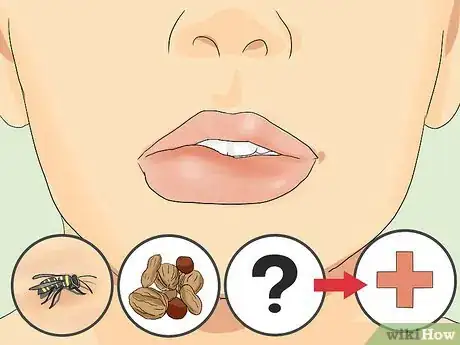
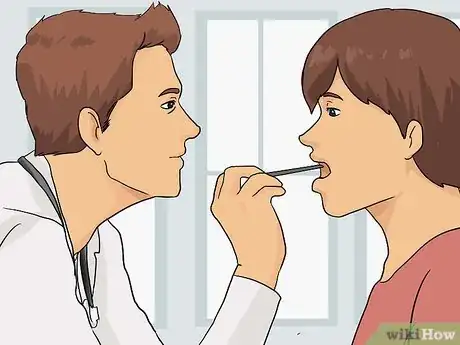
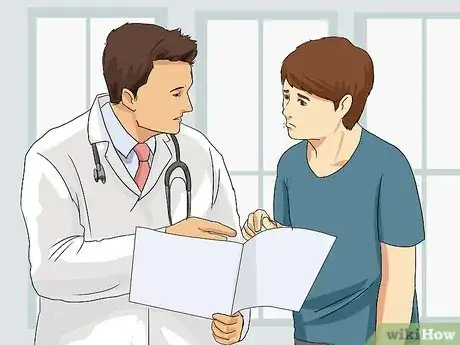
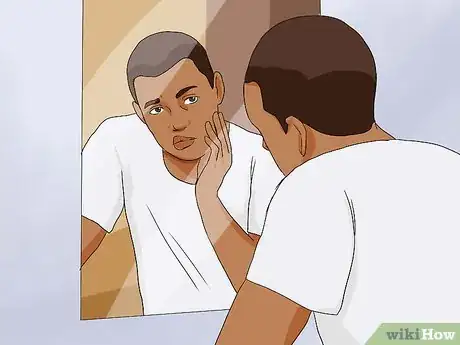
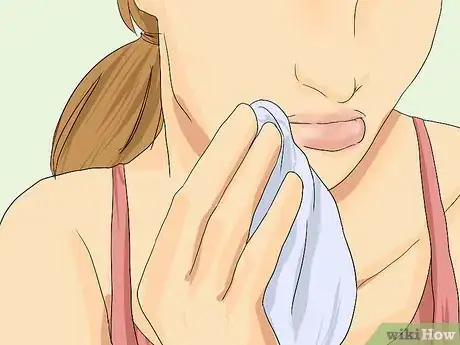
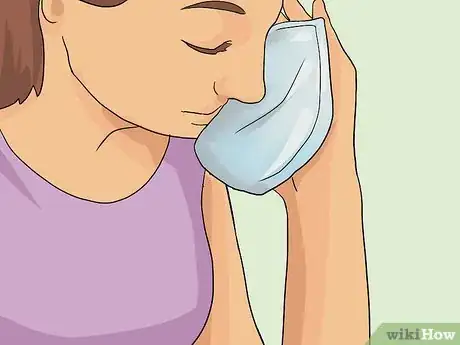
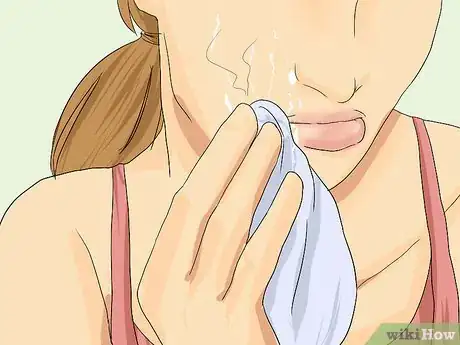
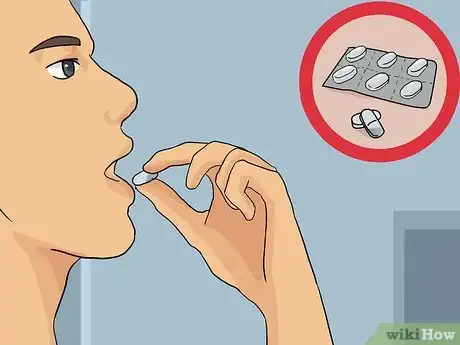
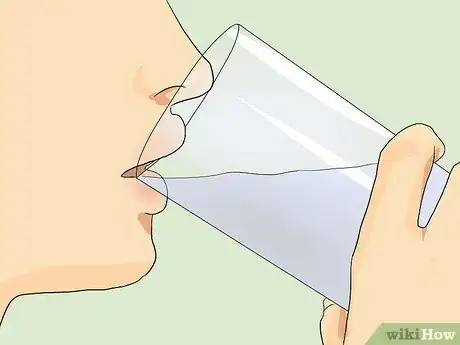
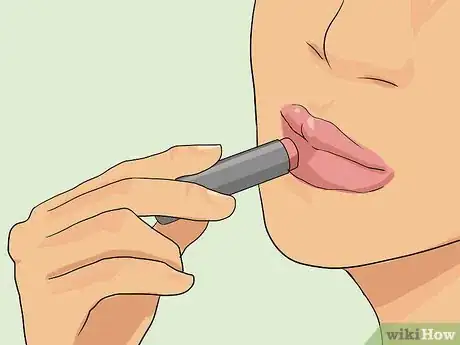
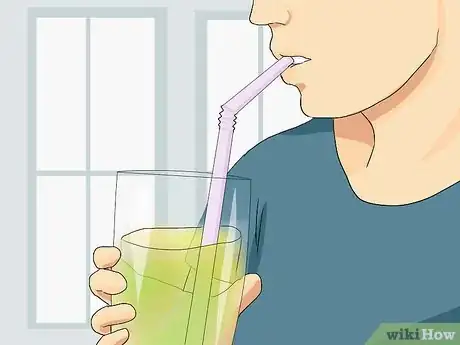
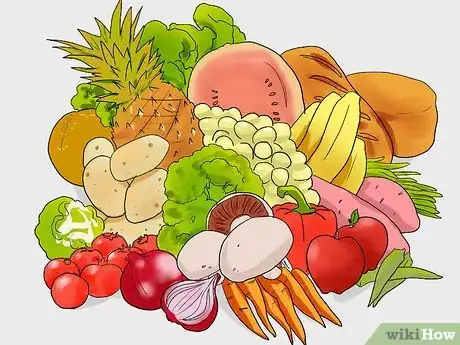
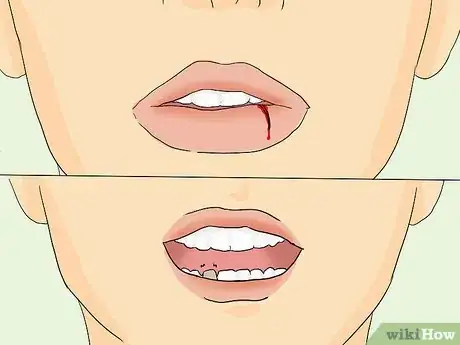
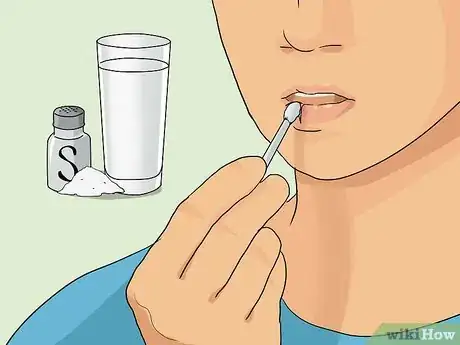
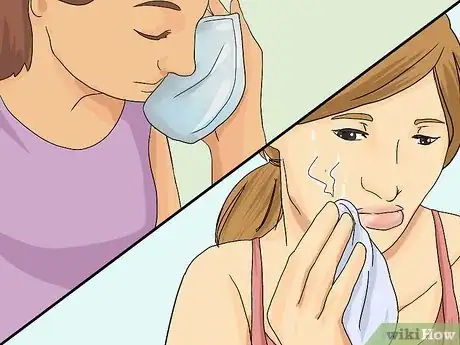
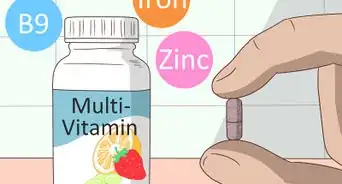

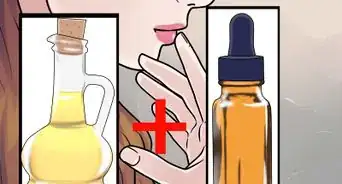
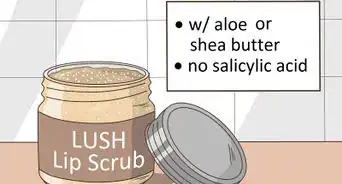

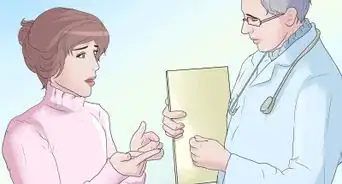


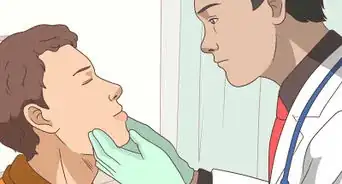
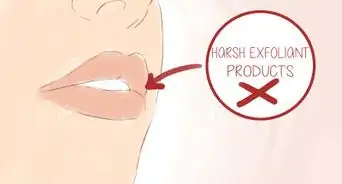

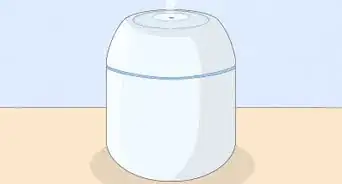










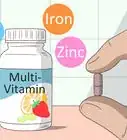

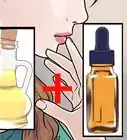
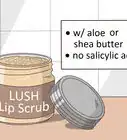



































Medical Disclaimer
The content of this article is not intended to be a substitute for professional medical advice, examination, diagnosis, or treatment. You should always contact your doctor or other qualified healthcare professional before starting, changing, or stopping any kind of health treatment.
Read More...